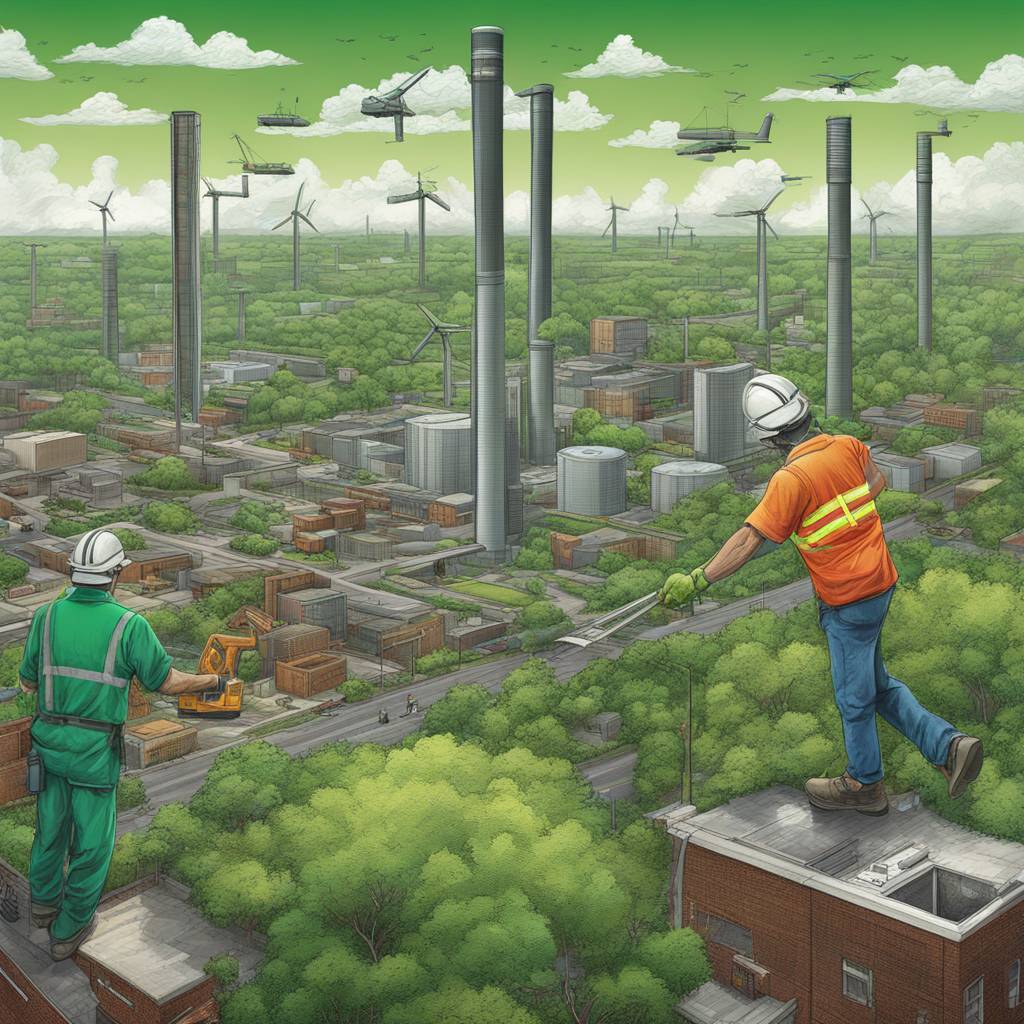Jeff Sprau, CEO of Legence, is leading the charge in preparing built environment spaces and people for a climate-resilient future. He emphasizes the importance of energy efficiency, which he refers to as the “first fuel,” in reducing carbon emissions and strengthening energy security while also providing tangible economic benefits. Sprau believes that investments in energy efficiency can lead to significant emission reductions and cost savings for businesses and consumers.
Despite the focus on renewable energy, there is a critical shortage of skilled workers in the green sector, including HVAC technicians, plumbers, building designers, and engineers. The demand for these “green-collar” workers far exceeds the current supply, threatening to stall progress in climate action. To address this shortage, there is a need for a vast influx of workers to utilize the private and public capital available for climate initiatives.
Investments in energy efficiency have increased by 45% since 2020, with a strong emphasis on building efficiency to reduce emissions and mitigate energy price spikes. Countries representing 70% of global energy demand have strengthened their efficiency policies or introduced new ones in the last year. While progress has been made in improving building efficiency, the rate of improvement slowed in 2023, highlighting the need for more action to be taken.
Focusing on energy efficiency is not only beneficial for the environment but can also have positive economic and social impacts. Initiatives such as the Inflation Reduction Act and Bipartisan Infrastructure Law are expected to create over 535,000 jobs annually for the next 10 years, stimulating local economies and empowering individuals. Jobs in energy efficiency are in high demand, with nearly one-fifth of all new jobs created as a result of climate stimulus spending expected to be in this sector.
There are growing concerns about filling jobs in energy efficiency and other climate-related sectors, especially in rural and underserved communities. Innovative solutions, such as public-private partnerships offering subsidized training and mentorship programs, are needed to address this challenge. Companies are exploring alternative solutions, such as strategic acquisitions and community engagement strategies, to attract and retain talented green-collar workers.
Investing in green-collar jobs is not just about technology; it’s about empowering people to address the challenges of climate change. By equipping green heroes with the skills and resources they need, we can build a sustainable future brick by efficient brick. The fight for skilled workers in the green sector is already underway, with companies exploring various strategies to attract and retain talent for the important work of creating a climate-resilient future.













